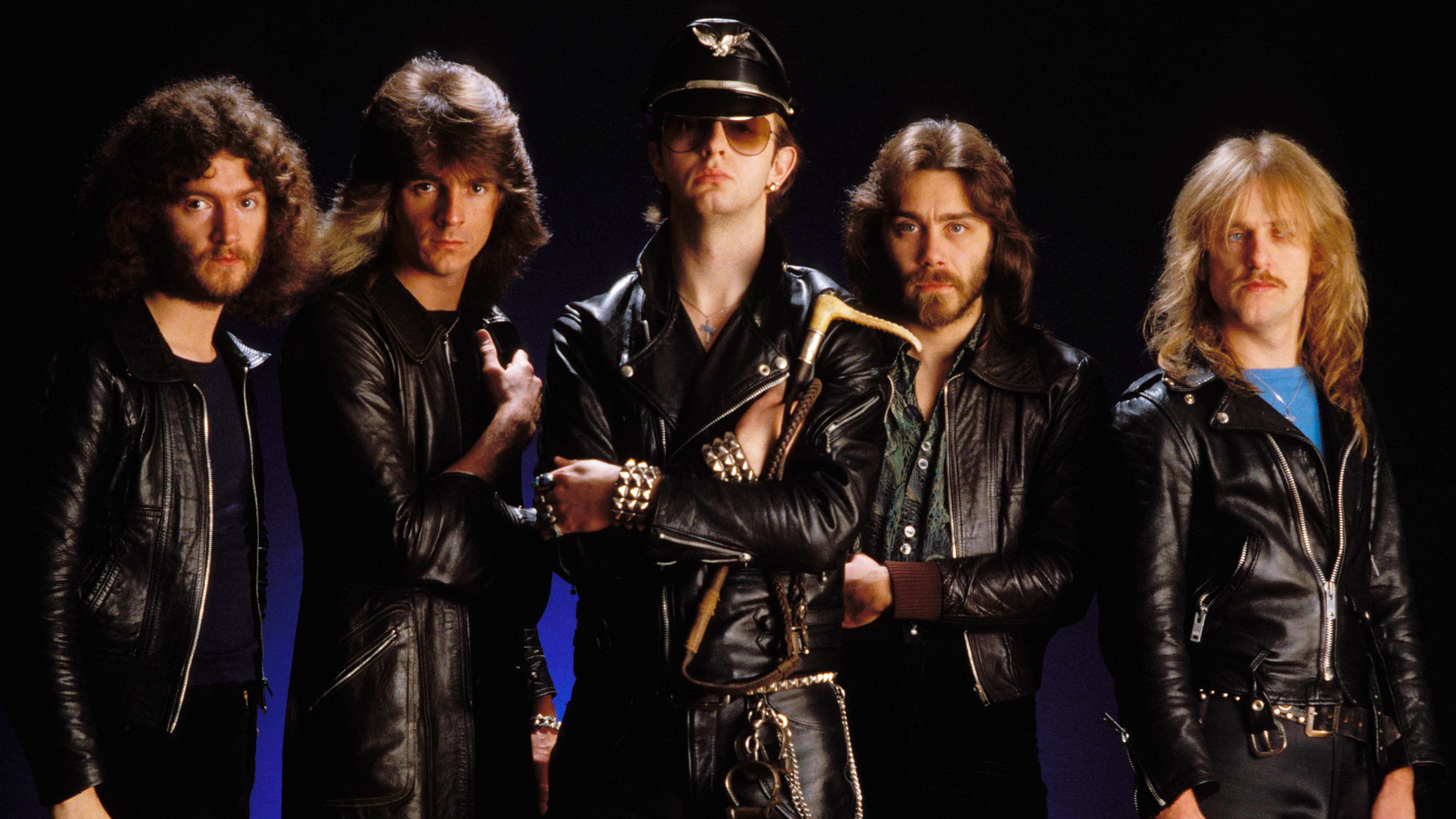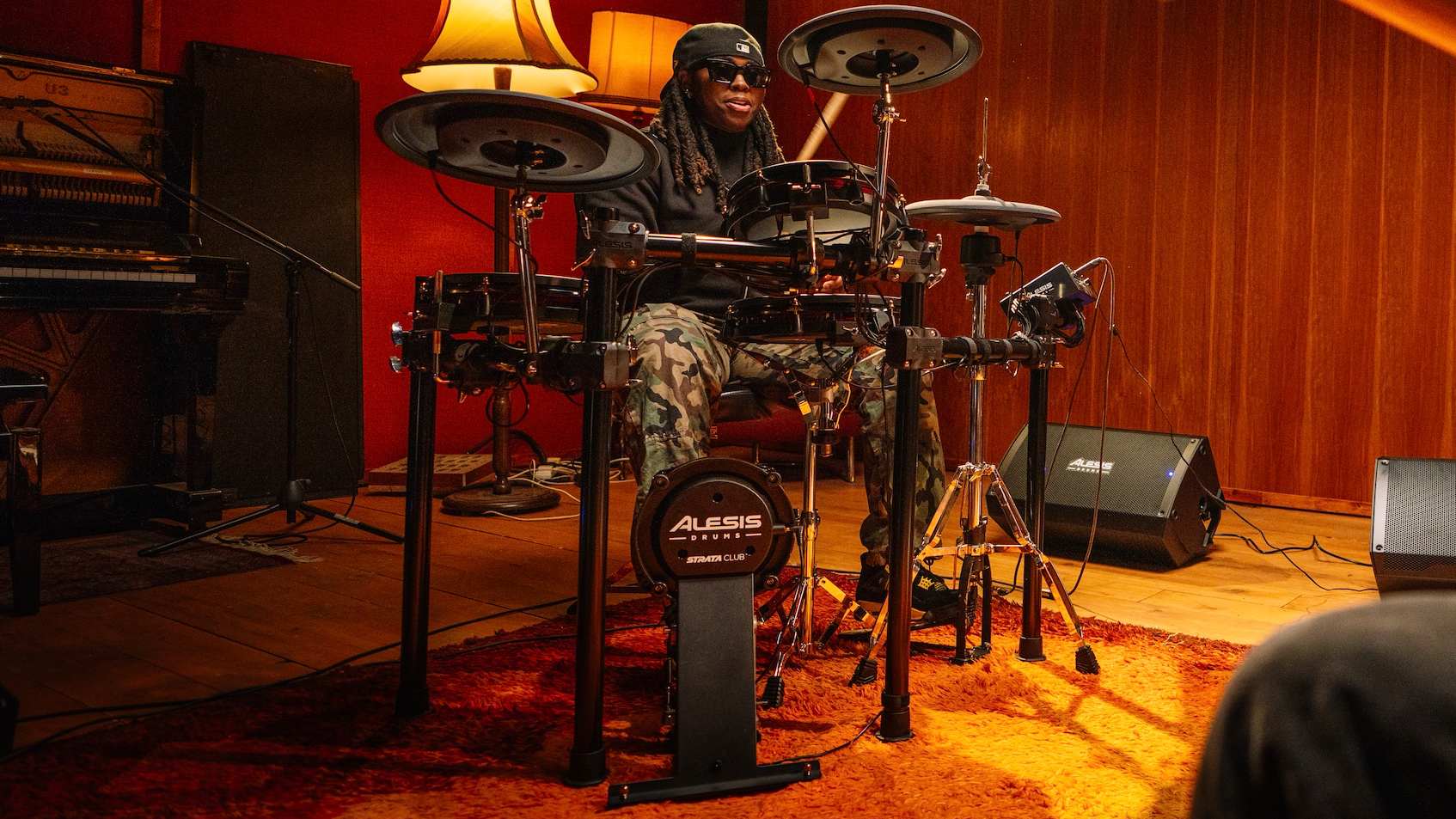Billy Sheehan's 6 top tips for bass players: “Listen to any great band and think about how the bass and drums work together, like Paul McCartney and Ringo Starr, Geddy Lee and Neil Peart, or Steve Harris and Nicko McBrain"
“Speed is just one of many tools you can use to create music”

Billy Sheehan knows a thing or two about playing over pop tunes.
When I hear a great pop song - with a strong melody, groove and lyrics that are universal - it sounds fantastic, so why not add a little frosting on that cake?
Whether it’s in Mr. Big or his work with David Lee Roth, The Winery Dogs and beyond, it’s remarkable how one of the world’s most accomplished bass players knows when to rein it in and serve the song.
It’s something that many technique-focused musicians tend to lose sight of once they discover that need for speed…
“When I hear a great pop song - with a strong melody, groove and lyrics that are universal - it sounds fantastic, so why not add a little frosting on that cake?” he told us back in 2017.
“A lot of times you’ll hear a great pop song and then there’s nothing. There’ll be a nothing solo over a couple of chords. And I say that because I love pop music.
“Take a Whitney Houston song like Greatest Love Of All, which is brilliant: it could have had a spectacular sax solo over the chord changes: when you’ve got the hook, the chorus, everything’s fine… why not play a little bit?
"Put things in there that are as exciting as they are challenging."
Get the MusicRadar Newsletter
Want all the hottest music and gear news, reviews, deals, features and more, direct to your inbox? Sign up here.
And that's just the start of today's learns: listen up as the bass legend shares his six tips for musical greatness…
1. Remember no-one else sounds like you!
“The sound of a player comes down to several things. There will be a sonic fingerprint to every musician.
“I remember back in the day, the big three of guitar were Beck, Page and Clapton, and people couldn’t tell them apart! I was blown away by that - I could hear hundreds of miles of difference.
"Even today, a lot of people can’t tell difference, which is quite amazing to me. Every player has his/her own DNA and fingerprint; it’s all in the iris of the eye and we’re all different.
“No matter what gear you use - Yngwie Malmsteen could hand you his guitar plugged into his rig, and you still won’t sound like him! So much of it is in the hands. Can you craft your hands to mimic another player? Probably, to some degree, but it’ll never be exact.
If you want to sound like me, that’s cool, but I think on the way you might find you sound like yourself, which is even better!
“You can try to sound like me and buy all the gear, which is cool - it’s like creating a mountain for you to climb! And you’ll get pretty close, which will help you learn things along the way; you’ll find things you like more than the sound of the person you’re trying to emulate.
“We all have a unique sound: it comes down to how you hold your instrument and a million other variables. If you want to sound like me, that’s cool, but I think on the way you might find you sound like yourself, which is even better!
“I play very hard. My action isn’t all that low - many people are surprised by that when they pick up my bass. My strings are Rotosounds that tear you up, and I love them for that. My low E is a 0.110, extra big and heavy. Sometimes I’ll use a 0.115 or 0.120 for tons of mass. Playing hard on one of those will add to the sound right there. The way my fingers pluck over the pickup is an essential aspect of my playing.
“And then when you get to the bass and electronics, that’s a whole other world. I don’t even know what kind of wood my Yamaha is made out of - all I know is it’s a good kind of wood - because I’m busy concentrating on other things.
“The dual output adds to the sound as well, but I think that going into two amps at the same time is all well and good, but players really should concentrate on the type of music they want to play and doing it as good as they can. The sound will come with time; it might be four years, five years, nine years before you sound identifiable and unique.”
2. Speed is only a tool
“My playing can get real fast, because once you get accurate and strong, it’s like running… you won’t always jog, sometimes you’ll sprint! It’s nice to pick it up a bit and see how quick you can get to the end of the corner there. Why not? Speed is just one of many tools you can use to create music.
“I listen to a lot of classical music and there are a lot of quick passages that have a lot of emotional impact because there’s a musical reason for it. Some people have lost that, and look at it as a competitive thing, which is a sad state of affairs. The speed of notes can determine their emotion. Fast and aggressive can be exciting, while slow is beautiful and introspective.
“People lose sight of that and only go fast - I would urge them to understand it’s a musical tool. It shouldn’t be a competition; that’s not how you speak to people. Music is art and sometimes a bunch of rapid notes can actually get your attention and make you focus more on the lyrics or story behind it. Speed for speed’s sake is useless, a dead-end street.
“Some people might be taken back by me saying that - I can imagine a YouTube commenter would say, ‘All this guy does is solo all the time!’ But really, they’re only watching a three-minute clip from a two-hour show.
"People might think I’m guilty of being a speedy player, but to be honest it’s just one of many things. Concentrate on speed if you want, and make sure you are accurate. If you do it in time, you can get away with absolutely anything!
“There’s nothing I can do that no-one else could do. If you see me doing some seemingly impossible piece, you can do it if you dissect it piece-by-piece, note-by-note. It may take you a while, but there’s nothing you can’t do. I’m a firm believer of that.”
3. Quit if it gets boring
I’ve been doing this for 50 years, and every day I’m excited about getting out of bed, running downstairs and coming up with new ideas
“I once got an email from a guy many years ago that said, ‘I’ve been playing bass for six months and I’m bored - what should I do?’ And I wrote back, ‘Just quit bro. This is not for you!’ I’ve been doing this for 50 years, and every day I’m excited about getting out of bed, running downstairs and coming up with new ideas. I’m as excited about it now as I was when I was 16, probably even more! I love to play… to be bored on bass is impossible for me.
“There’s always a new mountain to climb. It might be more ways to bend, phrase or perchance you might want a fretless instrument or five/six string - there’s an infinite number of choices available. What an incredible time!
“When I was growing up, all you had was a P-Bass, Jazz bass, a couple of Gibson basses, there were a few Rickenbackers around, but that was about it. Now it’s unlimited, what you can do or plug into, how it’s tooled whether the frets are fanned, et cetera. It really is amazing.
“Manipulating those big stainless steel strings is like second nature to me - I’ve been doing it for 50 years now. I can imagine it might feel like a daunting task at first to put your fingers on these mini razor blades! After a while, you lose sensitivity and get calluses… the road there can be precarious and a little painful, but no pain no gain!
“I love being expressive with the instrument by bending or using vibrato - there are myriad techniques and combinations you can employ to play a note, and it never stops being fun.”
4. Be the cement in every song
“I know the song is all about the bass… wait, sorry, haha! Actually, I’m all about the drums. At soundcheck, the first thing you do is sort the drums. In the studio, the first thing you do is mic up the kit. The bass comes along and adds a key, as the drums don’t have a key. You only know what key you’re in once the bass is in there. The bass is in between time and melody, which are the two most important aspects of music.
“You have to lock into what the drummer’s doing, and I’ve been lucky to play with many great drummers - the greatest of all being Dennis Chambers.
"Jamming with him was like getting a PhD in time management. He’s a grandmaster and the best musician I know on any instrument, as well as a spectacular human being as well.
I’ve played in straight-up rock bands my whole life, and then Dennis Chambers came along and opened me up to a whole other world I had no idea about
“I’ve played in straight-up rock bands my whole life, and then Dennis came along and opened me up to a whole other world I had no idea about. I remember recording the first Niacin record with him on drums.
“We were listening to one of the tracks and there was a fill I wasn’t sure about - it didn’t feel in time. I was about to open my big fat mouth, then I realised who am I to say anything to Dennis Chambers about his drumming. I’m not that stupid! Then I heard it again and realised it was exactly right and so in… I just couldn’t wrap my head around it at first. I nearly made an idiot out of myself. That guy treats time in a brilliant way, and it’s an advanced PhD in rhythm working with him.
“It doesn’t need to go that deep; straight-up drums played solidly work amazingly well - listen to AC/DC’s Back In Black. There’s barely even a tom fill anywhere: it’s kick, snare and hat! The way they lock in helps explain why it sold over 30 or 40 million copies. It goes platinum every year!
“Listen to any great band and think about how the bass and drums work together, like Paul McCartney and Ringo Starr or Geddy Lee and Neil Peart or Steve Harris and Nicko McBrain. Those pairs work together and help make their bands great. It’s the foundation you lay before guitars and vocals come into the mix. Drums and bass are like the cement!”
5. Ears > scales
“I don’t know much about scales… I just know what I hear. Thankfully, through listening to a lot of genres, I’ve probably learned all of the modes. So I do know the systems and how they sound, but I don’t know which is which or the Greek names for them. When I hear something, I know where to go with it - in more of a visceral, ingrained way than anything too scholarly! I wish I knew more, and I’m always studying to self-educate, but mainly for me it’s just ears.
“I go with what I hear, so when I hear Steve Vai play, I know where he’s going to go. I can anticipate that stuff enough to hold a note at the back or jump in there and deliver whatever he wants. When I play with Steve, I want it to be Steve’s thing! I’m a sideman; I’m there for the guy whose name is on the ticket. He is like a brother to me, so I want to nail it even more.
“Playing with Richie Kotzen, there’s a lot of blues and jazz notes in there - I always think he plays lines that sax players like Eddie Harris or Sonny Rollins would have. On the first Winery Dogs record, he played a solo on one of the songs and I swear I could hear the valves of a saxophone clicking! It’s part of the sax tone… I don’t know how he does it!
“What a monster player, and like Steve, I just automatically know what he’s doing and where he’s going. It’s not much of an intellectual thing… I wish I knew more. And I will carry on learning, I promise!
“If you know what you’re talking about, you should be able to explain it to anybody - even a five year-old. And that’s precisely when I realise my knowledge of certain things isn’t all there!
"The fretboard is an incredible adventure… a lot can happen on that piece of real estate. When you take the fretboard off a guitar and stare at just the neck, it’s pretty small. It’s incredible what can happen!”
6. Know every kick in the set
“The first piece of advice I got was before I even owned a bass, from a guy called Joe who I looked up to. One day, he was rehearsing with a drummer and I asked where the rest of the band was.
"He told me that he had to play a bass note every time the drummer hit the bass drum! Well, what do you know? The most important piece of information as far as ensemble playing goes was given to me before I even owned an instrument.
“So now I rehearse with the drummer before every tour - just two of us, bass and drums, so we can go through each song and know exactly how everything is getting treated. That way, I know every kick drum pattern and can lock into it."
Amit has been writing for titles like Total Guitar, MusicRadar and Guitar World for over a decade and counts Richie Kotzen, Guthrie Govan and Jeff Beck among his primary influences. He's interviewed everyone from Ozzy Osbourne and Lemmy to Slash and Jimmy Page, and once even traded solos with a member of Slayer on a track released internationally. As a session guitarist, he's played alongside members of Judas Priest and Uriah Heep in London ensemble Metalworks, as well as handling lead guitars for legends like Glen Matlock (Sex Pistols, The Faces) and Stu Hamm (Steve Vai, Joe Satriani, G3).










